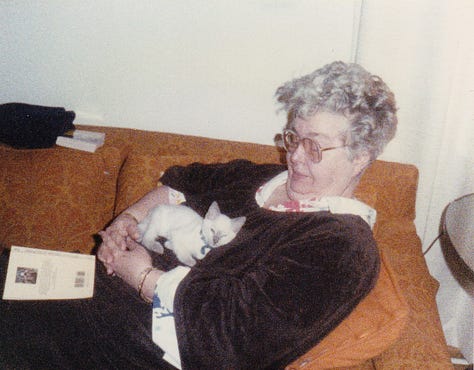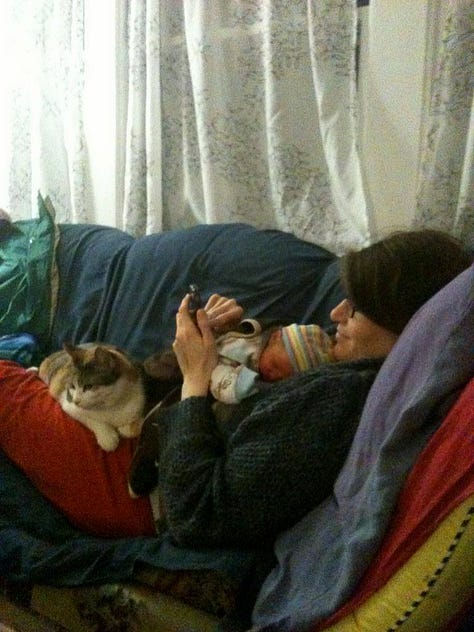I woke this morning to ’s excellent piece on single mothers and to a Facebook memory of the final day of this little project I did back in 2016, which I’ve edited lightly and reproduced below.
#loveyoursofa Day 7.
A week or so ago I started seeing people posting pictures of their husbands (and it was always husbands) with a “love your spouse” tag and a note that this was part of a challenge to “promote marriage." While it's best, in general, not to take Facebook challenges and internet memes too seriously, this one set my teeth a little on edge.
Even a few years ago, many couples would not have been able to "promote marriage" in their posts because they were, in the United States, not legally allowed to marry. While the Supreme Court's decision in Obgerfell v. Hodges happily overturned that state of affairs, it did so, in its majority opinion, in part by throwing other kinds of families under the bus: “Without the recognition, stability, and predictability marriage offers, children suffer the stigma of knowing their families are somehow lesser. They also suffer the significant material costs of being raised by unmarried parents, relegated to a more difficult and uncertain family life.”
Most families in the US today do not consist of heterosexual married couples on their first marriage.1
You may recall the Faith Based Initiatives of the first term of George W. Bush's administration. One of their projects was to “promote marriage,” because, they believed, marriage was the cure to poverty. Katherine Boo wrote a devastating and brilliant article on how that played out for a couple of women in Oklahoma City.
We all know—usually from our own lives—that we do not represent our entire selves on Facebook. People who are the victims of domestic violence may represent even less--they may even falsify their lives for public consumption. Domestic violence was not illegal in most places until the 1970s. The national domestic violence hotline only went live in 1996. While I believe that most of the “love your spouse” posts I've seen come from people in genuinely loving and happy relationships, I don't want to overlook the possibility that such memes feed into an abuser's supply.



These are some of the sofas of my past. There’s my grandmother and our old cat Max on the sofa I grew up with, a thrifted orange monstrosity that my grandmother insisted my parents buy. It was ugly, but I was very fond of it. When I lived in Wyoming, I got the sofa on that ended up the cover of my book, and there I am with my baby and our cat after we got home from the hospital. A few years back I bought a brand new sofa for the first time—and then I got my dear sweet dog and of course ended up letting her lounge on it.
I’ve spent a lot of time with the sofas of my life—more than I have with any romantic partner—and they’ve gotten me through good times and bad, as have my wonderful, loving, and unconventional family.
I wish the same support for all of you.
That’s a story from 2013, so the numbers may have shifted.


